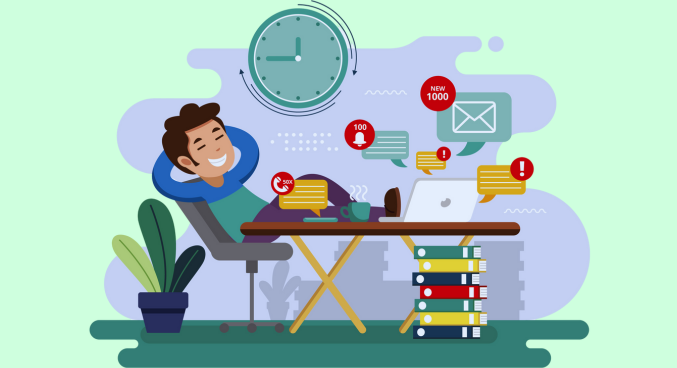How To Overcome Procrastination: Key Tips to Stay Productive

Over the years, I’ve interacted with numerous individuals about their productivity hurdles. Among these challenges, procrastination consistently emerges as a significant obstacle. Whether you’re new to managing your time or a seasoned productivity enthusiast, mastering how to overcome procrastination is essential for reaching your goals. This article delves into understanding procrastination, employing effective strategies to counter it, and leveraging tools like time tracking to enhance productivity.
How To Overcome Procrastination: Practical Approaches
What Is Procrastination?
Before diving into solutions, it’s crucial to grasp what procrastination is. Procrastination is the tendency to delay tasks or decisions, often due to factors like a lack of motivation, fear of failure, or poor time management. By pinpointing the root causes of procrastination—such as perfectionism, a lack of interest, or feeling overwhelmed—you can devise targeted strategies to combat these issues effectively.
Harness Time Tracking to Improve Productivity

One of the most effective tools for overcoming procrastination is time tracking. By monitoring how you allocate your time, you can uncover patterns and inefficiencies that contribute to procrastination. Here’s how time tracking can help you stay productive:
- Track Time Usage: Utilize a time tracking tool to record how much time you spend on different tasks. This data helps identify areas where you may be wasting time or struggling with efficiency.
- Spot Time Wasters: Recognize activities or habits that lead to procrastination. By understanding these distractions, you can develop strategies to minimize or eliminate them.
- Set Practical Goals: Use insights from time tracking to establish realistic and achievable goals. Tools like Time Traker provide detailed analytics that can help you understand your productivity patterns and make necessary adjustments.
Apply Effective Time Management Techniques
Effective time management is key to overcoming procrastination. Here are some techniques to help you stay focused and enhance your productivity:
- Prioritize Tasks: Use task management systems or to-do lists to prioritize your tasks based on their urgency and importance. This approach ensures that you tackle the most critical tasks first.
- Break Tasks into Smaller Parts: Large or complex projects can be daunting. Break them down into smaller, manageable steps to make them less intimidating and easier to address.
- Establish Deadlines: Create specific deadlines for each task to keep yourself accountable and maintain a steady workflow. Deadlines help you stay focused and track progress.
- Implement Time Blocking: Allocate specific blocks of time for different activities. This structured approach helps you manage your schedule more effectively and reduce procrastination.
Develop a Consistent and Productive Routine

Creating a consistent routine is crucial for overcoming procrastination. A well-structured routine fosters productive habits. Here’s how to build an effective routine:
- Designate Times for Tasks: Set specific times for different types of work or activities. This structured scheduling keeps you organized and helps you stay on track.
- Avoid Multitasking: Focus on one task at a time to improve your efficiency and reduce errors. Multitasking can lead to decreased productivity and increased procrastination.
- Prioritize Major Tasks: Begin your day by tackling the most significant or challenging tasks when your energy and focus are at their highest.
Implement Techniques to Stop Procrastinating
In addition to understanding procrastination and utilizing time management strategies, consider these methods to directly address procrastination:
- Try the Pomodoro Technique: Work in short, focused intervals, typically 25 minutes, followed by brief breaks. This technique helps maintain concentration and prevents burnout.
- Apply the Two-Minute Rule: If a task takes less than two minutes to complete, do it immediately. This prevents small tasks from accumulating and becoming overwhelming.
- Minimize Distractions: Identify and reduce distractions in your workspace. Turn off non-essential notifications, close unrelated tabs, and maintain a tidy work area to enhance focus.
- Create an Optimal Workspace: Design a workspace that promotes productivity. Ensure it is comfortable, well-organized, and conducive to concentration.
Embrace Mindfulness and Stress Management

Incorporating mindfulness and stress management practices can also aid in overcoming procrastination:
- Practice Mindfulness: Engage in mindfulness exercises, such as meditation or deep breathing, to remain focused and present. These practices can help reduce anxiety and improve your concentration.
- Manage Stress: Address stress factors that contribute to procrastination. Incorporate stress-relief activities like regular exercise, balanced nutrition, and adequate rest into your daily routine.
Conclusion
Mastering how to overcome procrastination involves understanding its causes, applying effective time management techniques, and utilizing tools like time tracking. By addressing procrastination’s root causes and implementing practical strategies, you can significantly boost your productivity and achieve your goals more efficiently. Start incorporating these tips into your routine today to overcome procrastination and get things done effectively.
